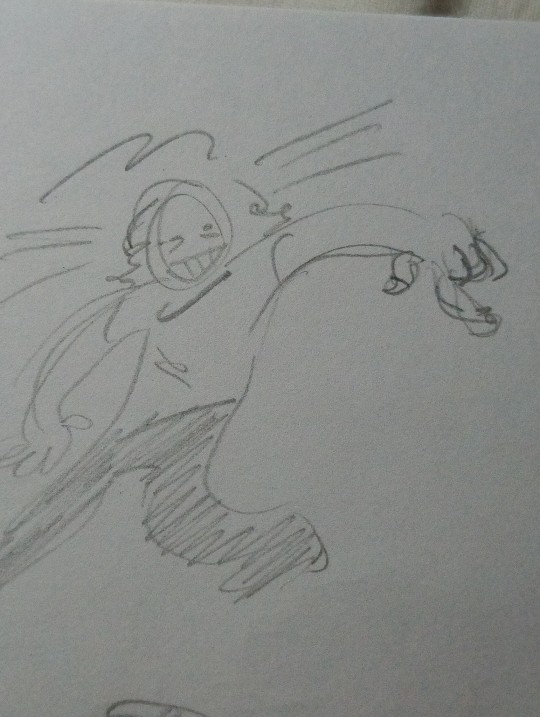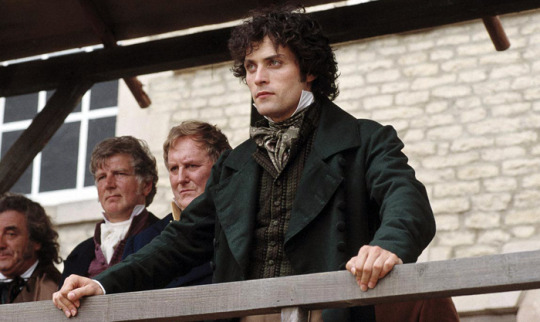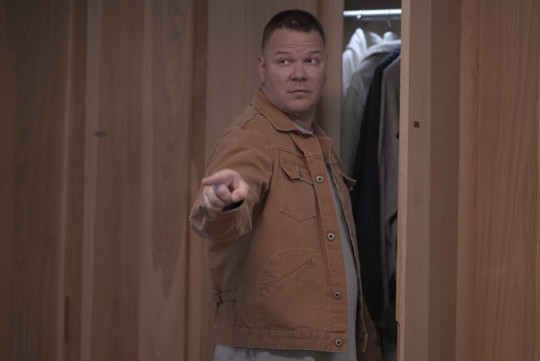#hello grace here
Text
tsumiki x hana could've been so good bc imagine both megumi and tsumiki falling for someone who is sharing their body with another entity - but megumi has fallen for the boy who was born to house the devil while tsumiki falls for the girl who is coexisting with an angel
#guys can you see my vision.....#tsuhana#?? idk what their ship name is man#itafushi#tsumiki fushiguro#jjk#hello grace here#im still not normal abt the fushiguro siblings btw
51 notes
·
View notes
Text

SO IVE PLAYED STRAY GODS.
I’m on playthrough 2 now and it’s already branched so much and I’ve unlocked new songs and it’s such a delight I’m having so much fun. I’ve also decided Grace has tattoos under the jacket because honestly why wouldn’t she.
#stray gods#illustration#wlw#digital arts#grace stray gods#does she have a last name?#fan art#video games#I will figure out what specific tattoos she has but right now I know it’s half sleeves and I think#more under the shirt and on her legs#i romanced Freddie first I died of how cute they are#I’m romancing Persephone on this playthrough and oh lord she’s so hot help#also hello I’m still here I just forget to post sometimes lol
1K notes
·
View notes
Text
While learning the ropes to being the last Muse, Freddie has been so wrapped up in her new life it’s been hard to try to focus on that new thing with Grace called Romance. When an opportunity to return home and rest appears, Freddie seizes it only to be met with a swelling crescendo of restraint finally buckling.
*chanting* greddie Greddie GREDDIE
#greddie#grace x freddie#i need a writing tag#stray gods#hello i am here#adding some new blorbos to my enclosure for enrichment
92 notes
·
View notes
Text




long time no art post wee woo fourth image is a self portrait for crop mostly :) rbs > likes!!!!!!
#chnt#chnt fanart#camp here and there#sydney sargent#jedidiah a a martin#cicada.jpg#sorry for not posting for a few months didnt have anything good to post woopsies#i once again grace the chnt tag. hello everyone
58 notes
·
View notes
Text

#oc#supernatural#spn meme#sam winchester#castiel#sastiel#i will be a sastiel truther to my death#those two were made for each other#angel fallen from grace desperately trying to do the right thing x dude cursed by the narrative desperately trying to do the right thing#come on. how good of an arc would it have been if cas started loving the humanity in sam#and revering his power & will to be human despite being part demon#how he always tries his best but his actions of best intentions end up causing apocalypses and world threatening events#um. hello. leviathin cas. demon blood sam. are we seeing a connection here
104 notes
·
View notes
Photo


(◕‿◕✿)
#(✪‿✪)ノ♡ 🐻#Rick Grimes#*#rg#S9#💕 Fuzzy Daddy 💕#TELL H I M#KING RICHARD FIRST OF HIS NAME#hello 911 there's been a murder#i would also like stitches#rogue neck fuzzies 💙#that bottom lip is illegal#even in the apocalypse#here comes Papa Bear 🐻#bout to invest in those kneeling pads people who garden a lot use#i will not beg for dick i will ask nicely one more time#would let him take me in the back room of an applebee's#he is beauty#he is grace#it would be an honor to sit on his.....#rhyme time#D_ D D Y#Pat I'd like to solve the puzzle
154 notes
·
View notes
Text
In defence of Will Ladislaw

George Eliot's characterisation of Will Ladislaw is one of the few aspects of Middlemarch that is not universally praised, with no less a person than Henry James commenting in 1873 that he lacked “sharpness of outline and depth of color”, making him the novel’s “only eminent failure.” And while Will's character is certainly not as clearly defined as some of the other characters in the novel, I believe that this was absolutely intentional on Eliot's part. Middlemarch is full to the brim of characters who believe they know exactly what they want—not least among them, our two protagonists, Dorothea Brooke and Tertius Lydgate, whose ardent ambitions and inflexible attitudes lead them into catastrophic errors of judgement and unhappy marriages.
By contrast, Will's lack of strongly defined goals and his changeability are almost his defining character traits. He's aimless and pliable, prone to rapid mood swings and drastic career changes, with even his physical features seeming to "chang[e] their form; his jaw looked sometimes large and sometimes small; and the little ripple in his nose was a preparation for metamorphosis. When he turned his head quickly his hair seemed to shake out light."
Will’s inscrutability is closely tied to his ambiguous status within the rigid class structure and xenophobic society of Victorian England, with his Polish ancestry and “rebellious blood on both sides” making him a target for suspicion. He is repeatedly aligned (and aligns himself) with oppressed, marginalised, and outcast populations—Jewish people, artists, and the poor.
He serves as a narrative foil for characters like Lydgate and Edward Casaubon, who prioritise specialist expertise above all and are consequently incapable of broad knowledge synthesis. He critiques Casaubon's life's work as being "thrown away, as so much English scholarship is, for want of knowing what is being done by the rest of the world." By contrast, Will serves as Eliot's defence of the value of a liberal education. One of the first things that we learn about him is that he declines to choose a vocation, and instead seeks to travel widely, experiencing diverse cultures and ways of life. He has broad tastes and interests, trying his hand at poetry and painting before eventually pursuing a career in politics.
He also functions as a narrative foil for Dorothea. Will is initially apathetic to politics, whereas Dorothea initially professes herself to be disinterested in art and beauty. This is perfectly encapsulated in their exchange in Rome, when Dorothea declares, "I should like to make life beautiful—I mean everybody's life. And then all this immense expense of art, that seems somehow to lie outside life and make it no better for the world, pains one", to which Will replies, "You might say the same of landscape, of poetry, of all refinement [...] The best piety is to enjoy—when you can [...] I suspect that you have some false belief in the virtues of misery, and want to make your life a martyrdom.”
By the end of the novel, Dorothea unlearns some of her puritanical suspicion of sensual pleasure, whereas Will becomes more serious, compassionate, and politically engaged, dedicating his life to the accomplishment of humane political reforms. They are both flawed individuals, who ultimately become more well rounded through their relationship with each other. Admittedly, Dorothea's influence on Will is more significant than his on her—and once again, I believe that this was intentional on Eliot's part.
In my opinion, the negative response to Will Ladislaw at the time of Middlemarch's publication (and in the centuries since) was and is profoundly informed by gendered expectations of masculine dominance in romantic relationships. Will's marriage to Dorothea has often been described as disappointing, with many readers and critics viewing the ambitious Lydgate as the embodiment of the ideal husband that Dorothea outlines at the beginning of the novel—a talented man engaged in important work for the betterment of humanity, to whom she can devote herself.
However, one of the central themes of the novel is that people are often mistaken in their beliefs about what they want, and Dorothea's marriage to Edward Casaubon certainly demonstrates that she would not in fact be happy living her life in submission to a man who does not respect her opinions. I firmly believe that Lydgate's misogynistic attitudes and expectations would have made it impossible for him to be happy in a marriage of equals with a woman like Dorothea. He is explicitly drawn to Rosamond Vincy because she has "just the kind of intelligence one would desire in a woman—polished, refined, docile."
By contrast, George Eliot made a deliberate choice to pair Dorothea with a man who is not ashamed to be influenced by her, and indeed looks up to her as his moral superior. Through Dorothea's influence, Will discovers his life's work. In turn, by marrying Will, Dorothea is able to pursue her true passion. As a result of their influence on each other, these come to mean the same thing—reform. Thus, George Eliot grants Dorothea Brooke a subversively feminist, politically progressive, and profoundly cathartic ending: a life of companionate marriage, sensual pleasure, and meaningful work, in which Dorothea can devote herself (within the limited means available to her as a woman in the 19th century) to the achievement of just and compassionate reforms that "make life beautiful" for everybody—herself included.
#PUT SOME RESPECT ON HIS NAAAAAME#hello please enjoy this fucking essay that I wrote#I haven't cited them here bc I'm not insane but I did in fact read several academic articles while writing this post#so if you wanna see my sources/ do some further reading let me know#i love pouring all my fandom energy into content that no-one gives a shit about#(girl who just posted an Alias Grace fic that noone will ever read and is currently working on a Middlemarch fic noone will ever read voice#Middlemarch#George Eliot#Mary Ann Evans#Will Ladislaw#Dorothea Brooke#Edward Casaubon#Tertius Lydgate#classic literature#19th century literature#classic lit#books
11 notes
·
View notes
Text
yknow what. the lightwoods should have been more important to the overall plot of tlh then they were. in every single previous series, the main villians/antagonists have had a very personal connection to the main characters; Clary -> her dad and brother (+ Jace also has a complicated relationship with them), Tessa -> the guy who manufactured her birth & her brother, Emma -> the guy who murdered her parents/Julian -> said guy who also hates his whole family & his long dead ancestor. like Belial is James & Lucie's grandfather but he A. does not give a shit about Lucie and B. only really appears at the end of the book.
Tatiana is the more front and centre villian of tlh, and yet none of the mains actually have that much of a relationship with her. like yes there's Grace & they have relationships with her but that's not the same to me?? plus Tatiana seeming hates all their families equally which is also weird to me too; she barely knew Jem for example. but with her brothers, that's personal!! & a much more compelling and complicated situation.
and the flash fictions did set some stuff that could've been interesting! like Gideon worrying that both Jesse and Thomas being sick could be connected, and telling her as much. and then she basically tells him his son gonna die & her's won't; like that has to sting now, since Thomas is older than Jesse ever was. and Christopher says one of the reasons he turned to science was because Jesse died! and there wasn't anything anyone could do to save him!! like that's their aunt and cousins!!! the plot entirely hinges on them & their decisions!!
#like there's no series without Tatiana 🧍🏻♀️#okay I understand I may be biased here the lightwoods was my favourite family sldkidkdkdkd#also gideon & gabriel was almost entirely absent from the whole series#like hello???? THAT'S THEIR BABY SISTER???#chain of thorns#chain of gold#chain of iron#chain of thorns spoilers#cot spoilers#chot spoilers#the last hours#tatiana lightwood#jesse blackthorn#grace blackthorn#gideon lightwood#gabriel lightwood#christopher lightwood#thomas lightwood#anna lightwood
74 notes
·
View notes
Text
does anyone have any headcanons about what Jason thinks of Hazel or vice versa bc they were given hardly any time together and I'm very curious what anyone believes they thought of each other??? I think they have cool friendship potential but I hardly see it explored so idk
#heroes of olympus#jason grace#hazel levesque#hoo#idk how many people are even in this part of the fandom anymore but im here so hello lol#thoughts?
14 notes
·
View notes
Text

new profile pic!
i was trying to work on a rottmnt animation but i got overstimulated soooooooooooo i made a new profile pic instead! featuring my fav pair of pants :D
#theflann#profile pic#zombie#zombieme#i try my best okay#in one of my fav comfy outfits#if you know me irl you know this outfit#featuring a new thumb for the one i almost cut off a year ago#I swear i love my thumbs#no i didn't add the tshirt details#its was a three days grace band shirt#if youre reading this wow#hello down here
17 notes
·
View notes
Text

can i interest you in some,, beast souheki
#i did itttt#it's not as good as i'd hoped but it's done. and that's what matters#anyway i was struck with this vision as i was falling asleep the other night and i needed to bring it to life#souheki#daran#ranzai#bsd#bsd beast#dazai osamu#ranpo edogawa#hello grace here
43 notes
·
View notes
Photo




New Stills: 911: LONE STAR S4 E2 - “New Hot Mess”
#hello yes but I do love them so very much#LOOK AT THEM#a top-tier trio right here#911 lone star#ls spoilers#grace ryder#tommy vega#judd ryder
50 notes
·
View notes
Text
Unnamed Hello Puppets AU Character Biographies
Unfortunately my Ashley bio was TOO LONG for a Tumblr post so I'll copy paste my Quotev bios here. I'll put them in a book since I think you need an account to view Journals.
#hello puppets#hello puppets: midnight show#nick nack#riley ruckus#daisy danger#mortimer handee#Sincerely Mel#Mel's OCs#Mel's brainchildren#yes I call my OCs brainchildren#also gonna add this as#Marble Hornets#because of Tim being here#Ashley Anderson (OC)#Olivia Gubberson (OC)#Bella The Ballerina (OC)#multifandom crossover AU#although some parts only apply with Grace whose OC Lawrence Winters is#the only ship that applies to the verse outside of what I do with Grace is Ashley x Owen#or as I call them puppet parents#Owen Gubberson#Original Characters#Alternate Universe
3 notes
·
View notes
Note
I cannot believe the shit you did to bee you shouldn't be alive you fucking stain on this earth
what
#who the hell is Bee. why did this person make me wake up to like six asks telling me to kill myself#this is the only one I'll even grace with a response#hello?? anybody????? it's so dark in here#if I had a nickel for every time I was [presumably?] mistaken for someone else and had aggression misdirected at me........#ask to tag
11 notes
·
View notes
Text
microdosing on crushes by seeing my mutuals' icons when they reblog posts to my dash. y'all are so prettyyy (*/ω\*)
#i'm such a girl who's always thinking 'you have such a beautiful face' and 'i like your face shape' and 'you have a cute nose' and and and!!#i should probably articulate my thots more...#anyways hiii malice-mal and pommycore idk if y'all will see this but it's about u#omg u too maidofmetal#but also hello 2 my mutuals who grace us with ur beautiful selfie posts too ily#the brain chemicals r chemicaling every day on here#sry for not @ing i am leaving a little breadcrumb trail of admiration hidden in the dash
3 notes
·
View notes
Note
Wylie: Hello all, it is I, your favorite person.
Tam: Actually, Linh is my favourite.
Wylie: Okay then, it is I, that bitch.
(siblings 🧡)
me and my brothers
#i’m wylie dfgjklsgs#i’ll be like “hello i am here i have graced you with my presence”#and they’ll be like “go away” despite having begged me to come play legos or something#secret messages 📜#saturn 🪐#kotlc incorrect quotes
17 notes
·
View notes